Garlic planting day: Loudoun Co. family farm grows beyond supermarket variety
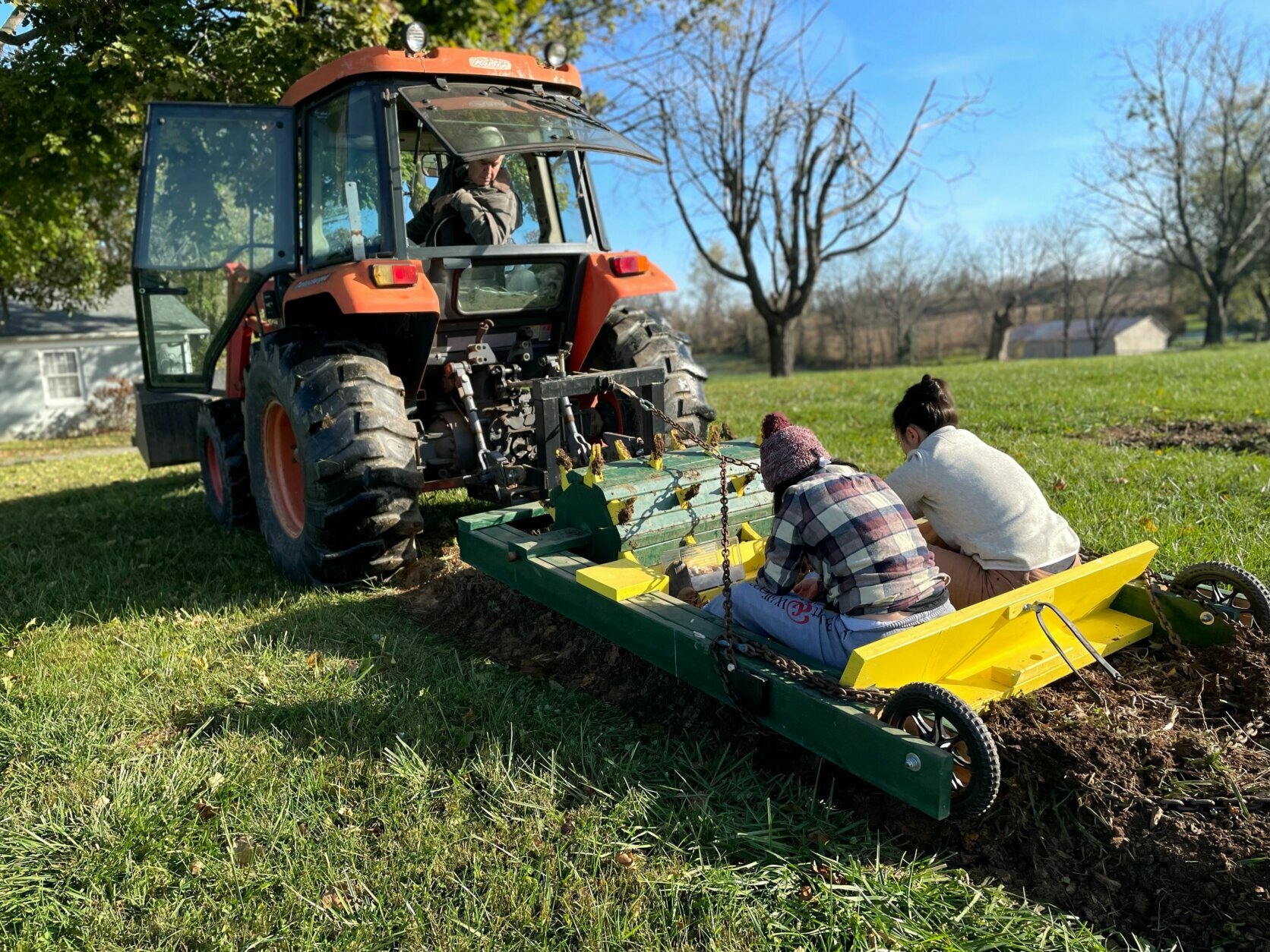 1/8
1/8
Peter Burnett and his daughters Ellie and Abbey, planting out-of-the-ordinary garlic, at their Loudoun County farm.
(WTOP/Neal Augenstein)
The tractor Peter Burnett is driving is probably going 1-mile-an-hour. The leisurely pace of farm life is in contrast to his day job as a partner in a personal injury law firm, based in Leesburg.
He and his wife Diana bought the farm in the late 1970s, and raised horses. In 2017, he and his daughters started Sisters Garlic Co., after realizing the varieties of garlic that could be grown, locally.
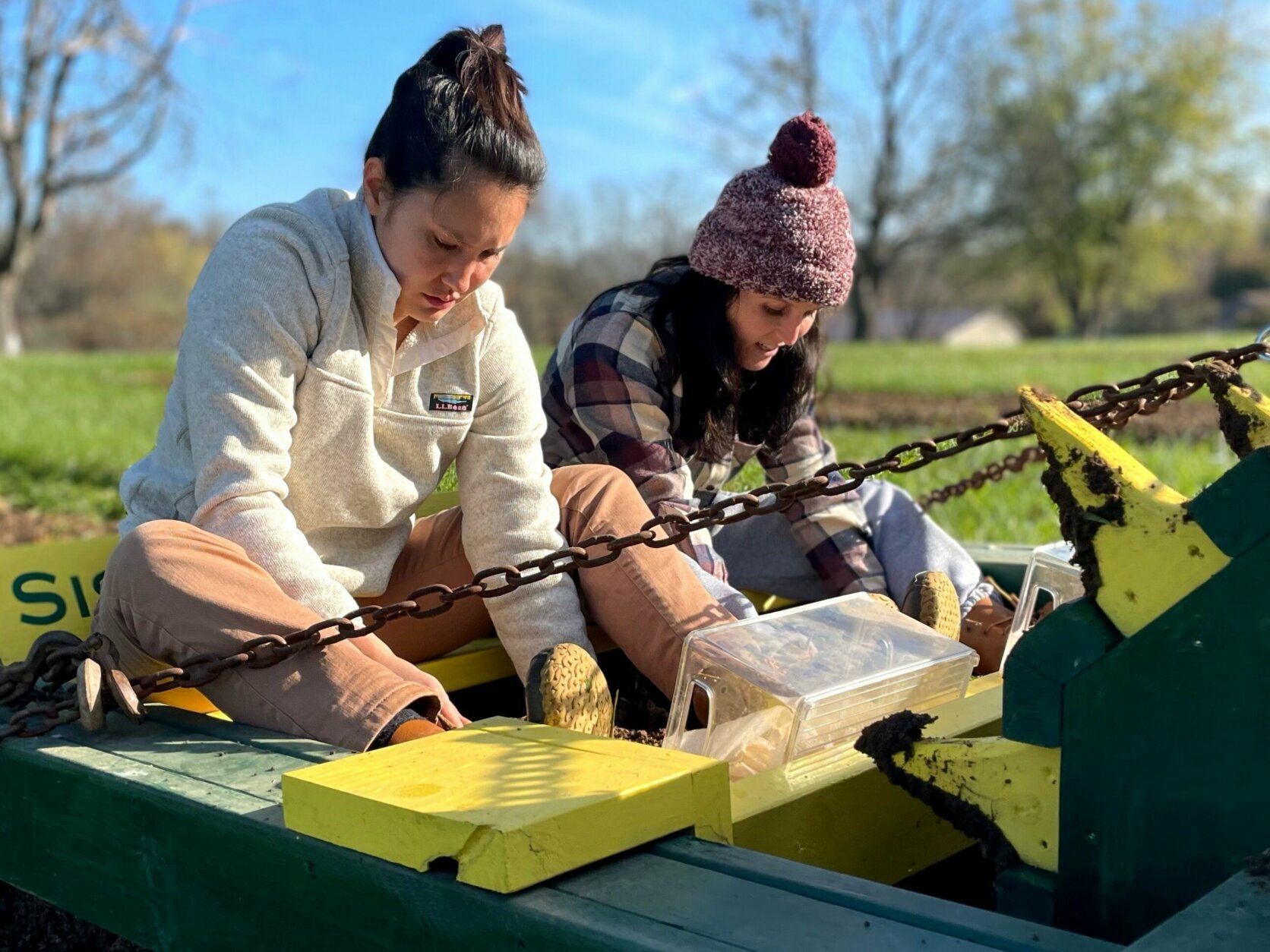 2/8
2/8
Abbey and Ellie grew up on this Loudoun County farm. With their father, Peter, they launched Sisters Garlic Co. in 2017.
(WTOP/Neal Augenstein)
Although they’re married with families, Abbey and Ellie return to the farm they grew up on for planting day.
Sitting on a planting machine, being slowly pulled by their father’s tractor, Abbey and Ellie carefully place a garlic clove in each of the holes made seconds earlier by the machine that Peter crafted out of tractor and other farm tools. The sisters and business partners catch up on what’s happening in each of their families, as they plant each clove, with the hope each will grow into a plump bulb.
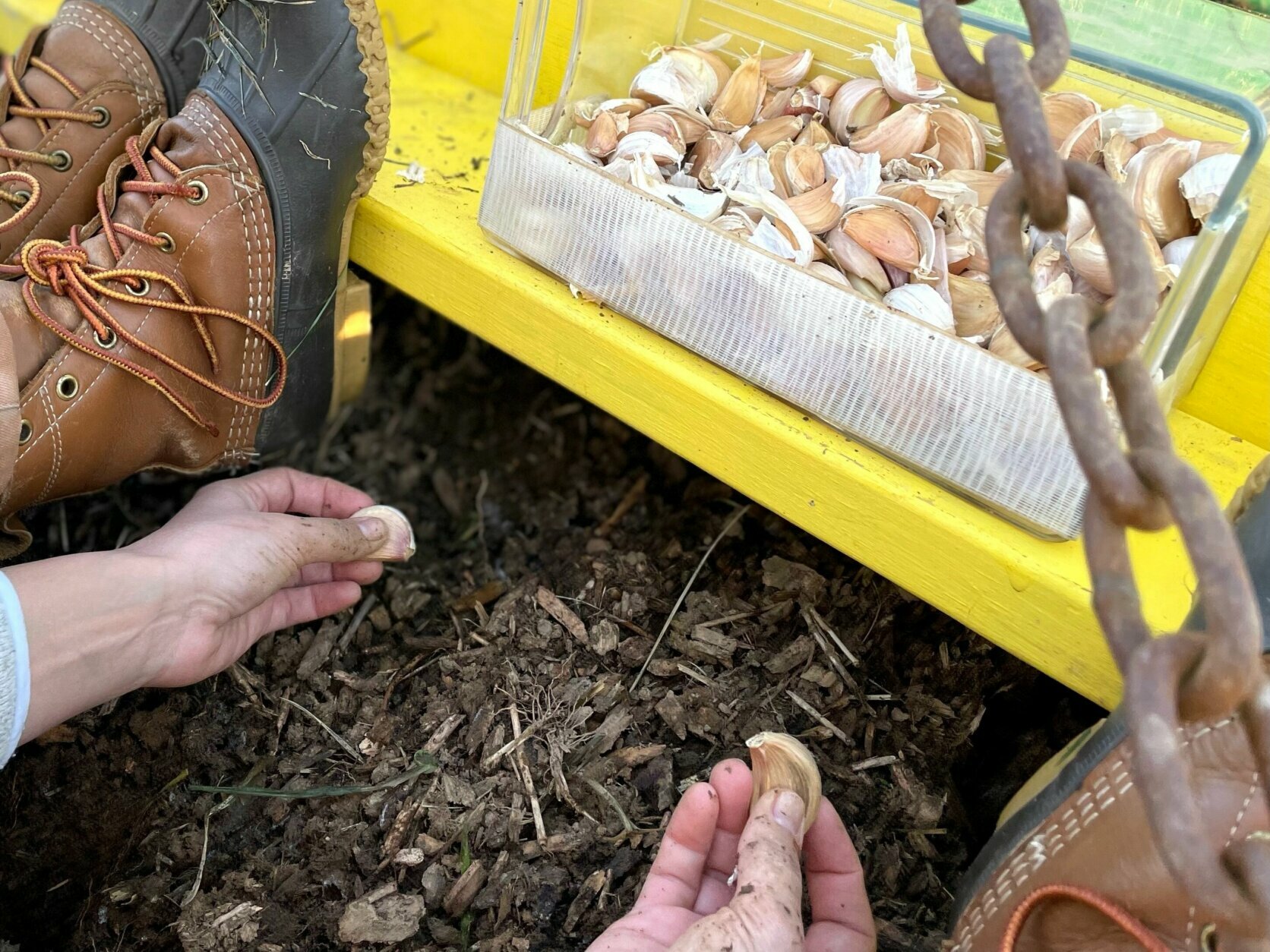 3/8
3/8
A garlic clove goes pointy side up when it’s planted.
(WTOP/Neal Augenstein)
Garlic cloves are the individual crescents of flavor — each individually “wrapped” in a fully-developed garlic bulb, or head. But that only happens when certain conditions are met, underground.
“Garlic needs to vernalize, which means they need to be below 40 degrees for 40 days, for them to create individual cloves,” Burnett said. “And if they don’t, they end up growing like an onion.”
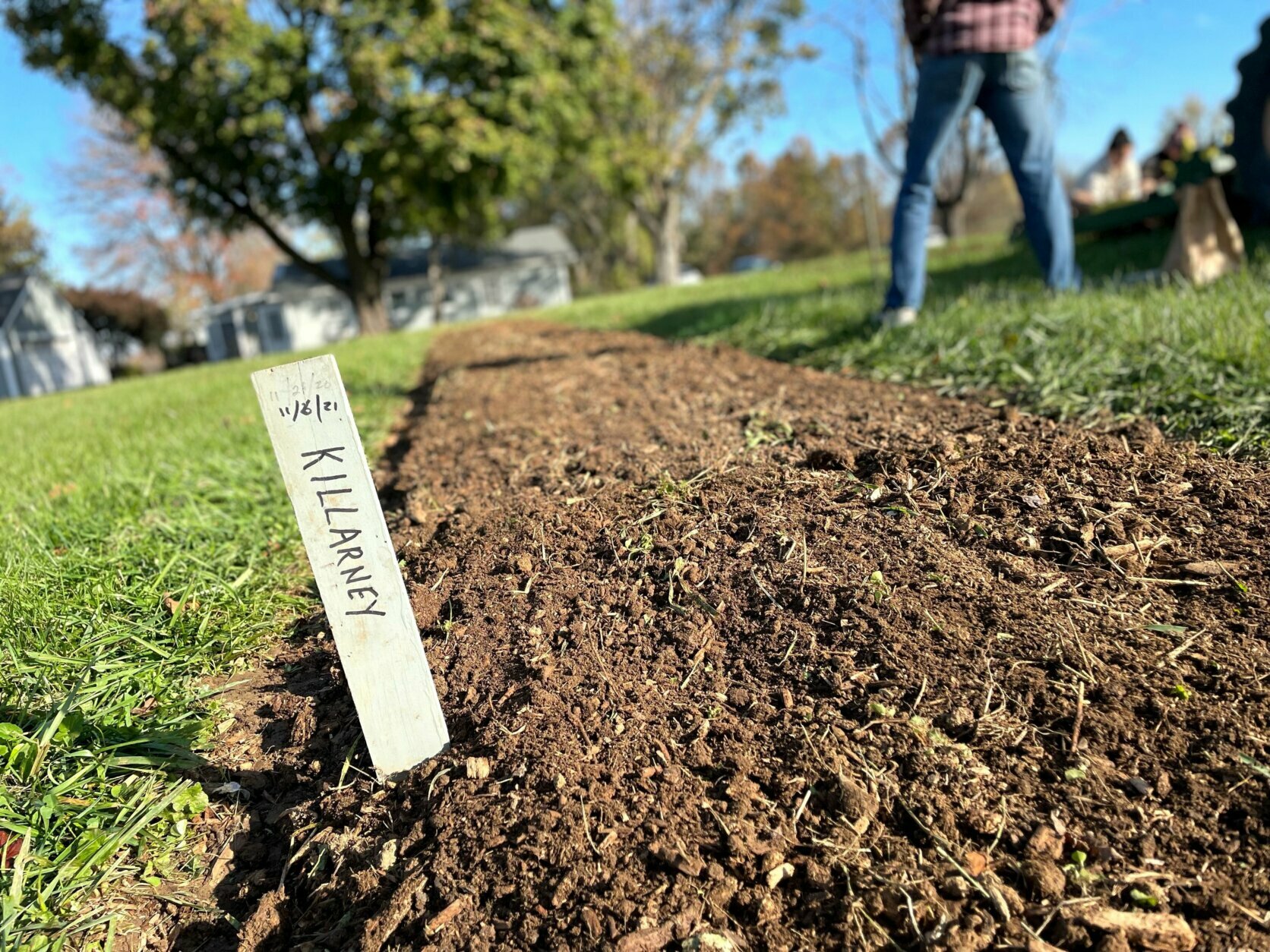 4/8
4/8
Garlic planted after the first few frosts is harvested around the Fourth of July.
(WTOP/Neal Augenstein)
In the Northern Virginia climate, the Burnetts plant garlic after the first few frosts of autumn.
“You put it in the ground and it actually responds to the cold, and starts to sprout,” he said. “You want the frosts to have come and knock down the surface temperature, because you don’t plant it very deep, and it likes a loose soil.”
And then, they wait a while.
“It will hibernate during the winter months, when it’s really cold, but come early spring you’ll see some green shoots come up in a hurry, and then the job is to keep the weeds away, because they don’t compete well with weeds.”
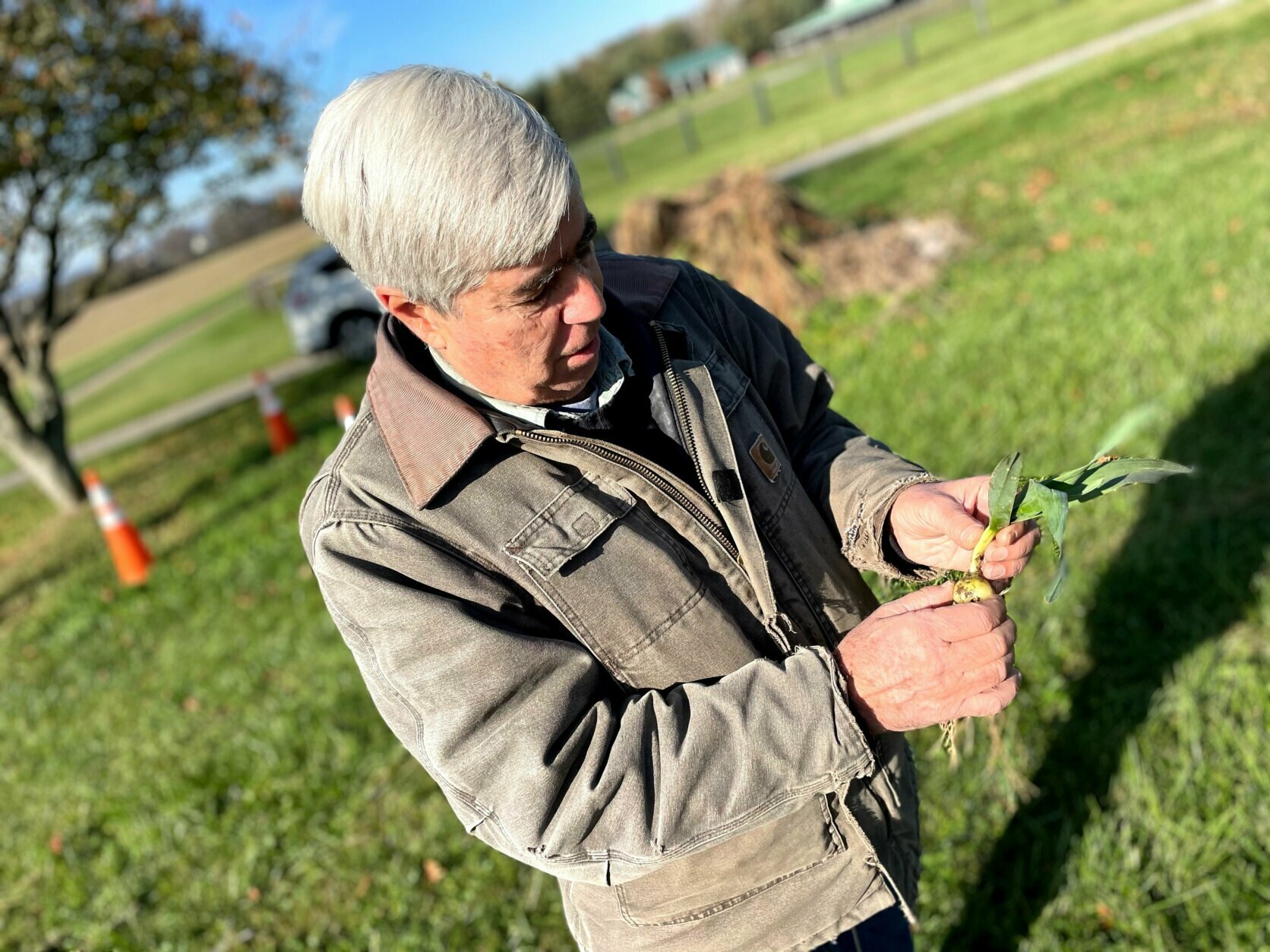 5/8
5/8
Choosing the right harvest date can be a challenge.
(WTOP/Neal Augenstein)
Burnett said keeping garlic growing underground doesn’t require much care, if the weather cooperates.
“They like regular rain, about what we get in this climate,” he said. “If we get it on a regular basis, it’s about just right.”
Timing is important.
“The bulb will grow about 50% of their growth in the last 30 days, so it’s a little touch and go on when to take them,” Burnett said. “This year, because I had a daughter’s wedding and other things getting in the way, I was late with my harvest, and that meant some were overly dry.”
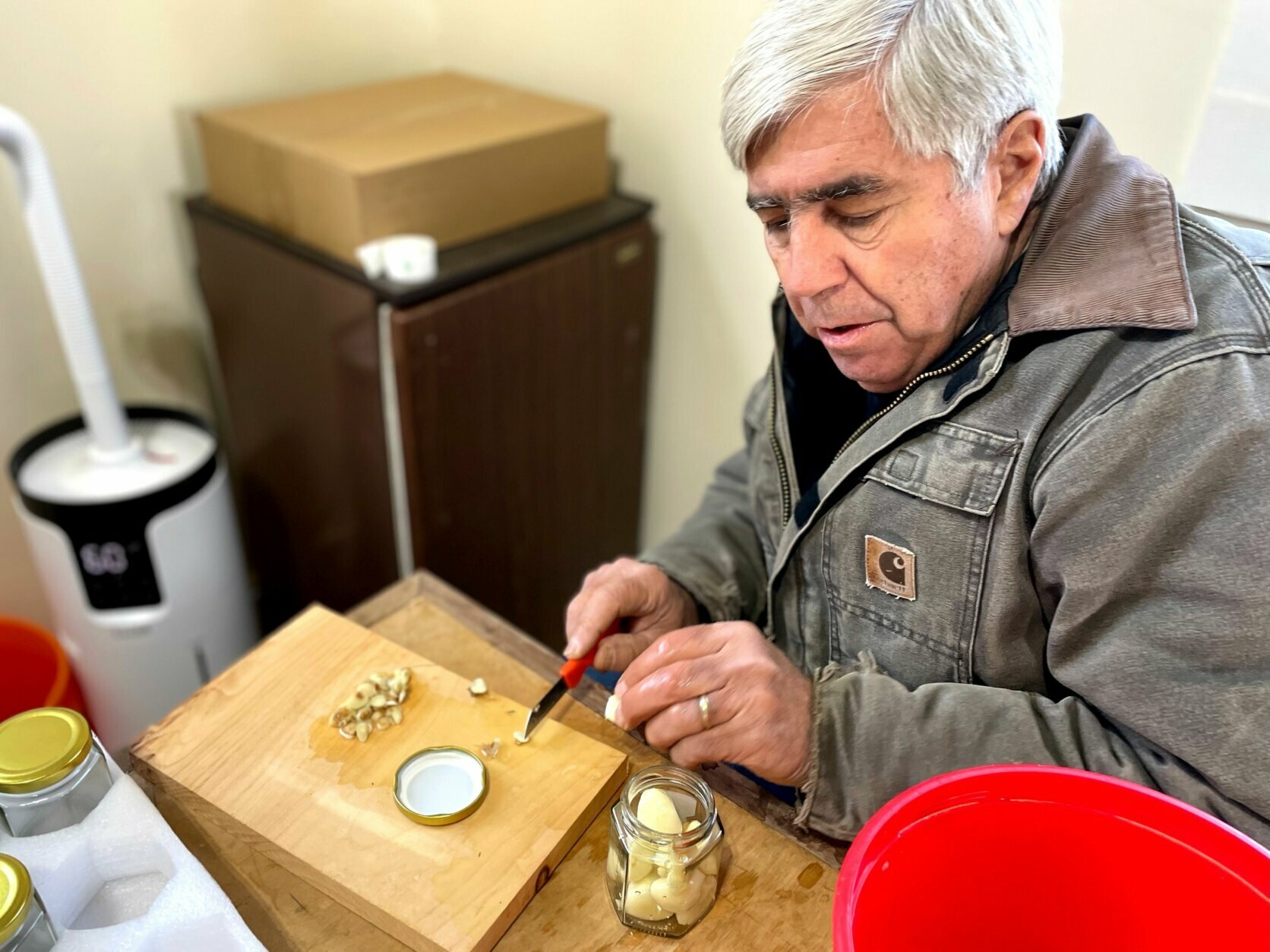 6/8
6/8
The aroma of garlic envelopes you as you walk into the barn.
(WTOP/Neal Augenstein)
In order to improve their shelf life, there’s more to do after the garlic bulbs are harvested.
“You knock the dirt off them a little bit, leave the root hanging and long stalk, and we bunch them up maybe 10 at a time, wrap a piece of bailing twine around it, and then we hang it in the barn,” Burnett said. “Out of the sun, and with a little bit of moving air, those bulbs will cure anywhere from three to six weeks, hanging that way.”
If a bulb has one less-than-perfect clove, the rest are peeled and put in a jar with white vinegar, to be kept in the refrigerator. When the clove is rinsed before use, Burnett says the vinegar is undetectable.
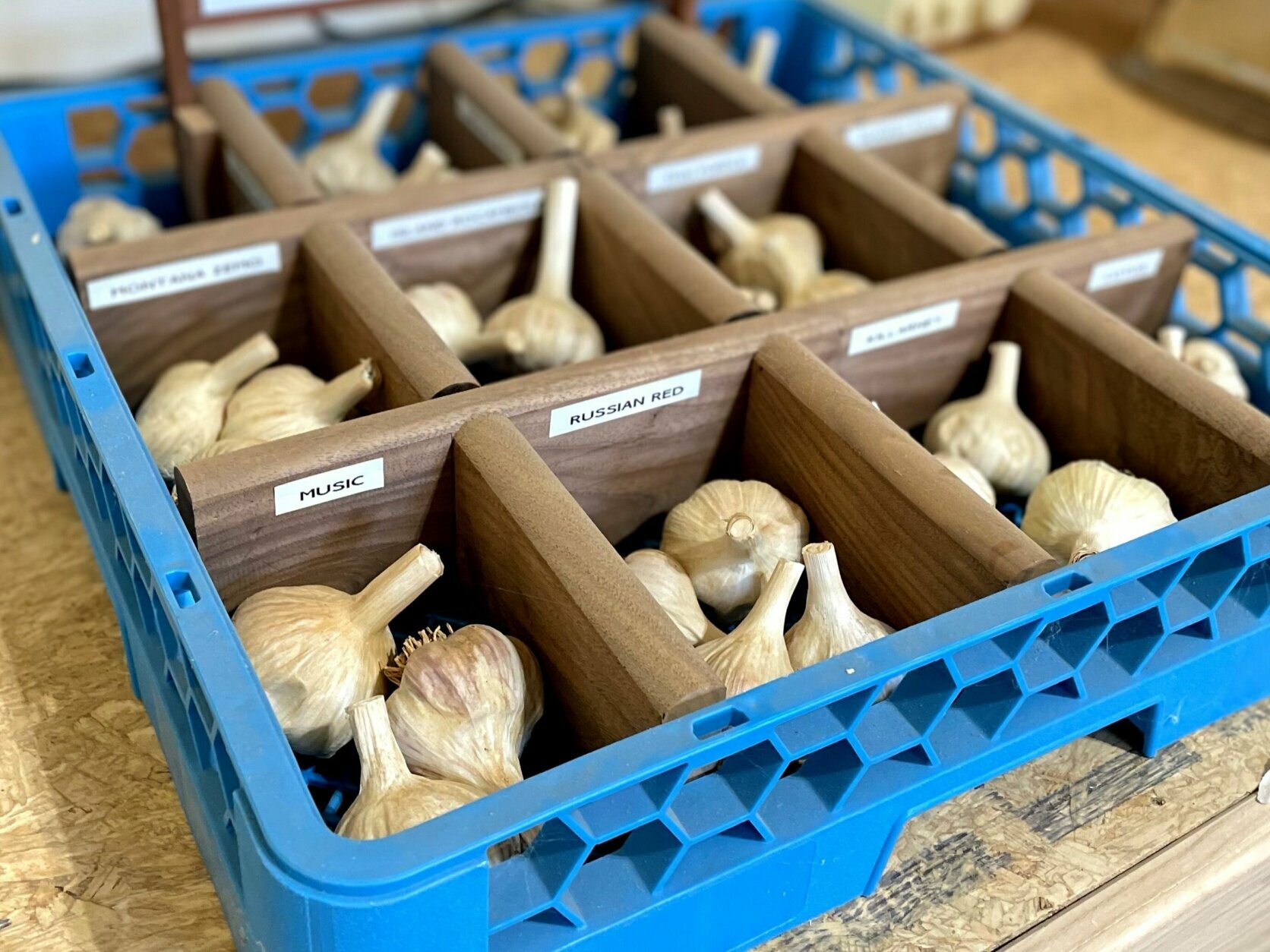 7/8
7/8
Different garlics yield different tastes and aromas.
(WTOP/Neal Augenstein)
“There’s histories of garlic that go way back — Russia, Greece, Italy,” said Burnett. “Garlic’s very popular in Thailand and other far Asian countries.”
Chesnock Red, with a purple color comes from Russia. According to the sistersgarlicco.com website, it’s best used for baking: “Awarded by many as the “Best for Baking’ garlic contest, this garlic is tender when cooked, with a robust and medium heat pungency.”
On the other end of the spectrum is Elephant Garlic: “It’s not really garlic, it’s a member of the leek family. It’s exceedingly mild — some people just slice it and put it straight in a salad.”
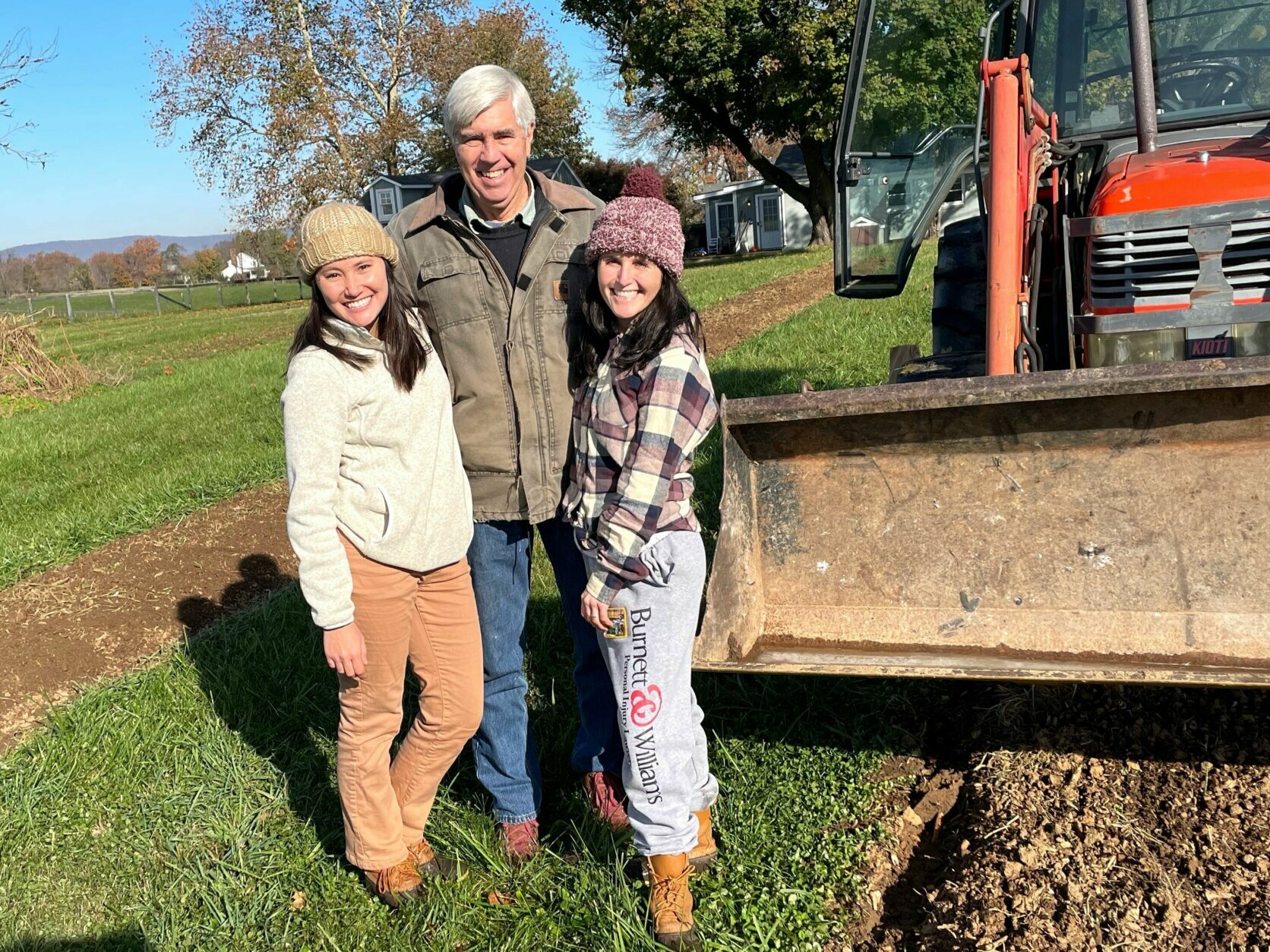 8/8
8/8
Garlic farming is a family affair for the Burnetts, at Sisters Garlic Co.
(WTOP/Neal Augenstein)
Abbey and Ellie developed their love of cooking from their mother, Diana.
While some people crave dishes with garlic front and center, others prefer a gentle infusion.
“At my age, my sense of taste and smell is starting to diminish a little bit, but my wife’s is still quite sharp,” Peter Burnett said. “When we’re doing our sorting in the garlic room out in the shed, she can barely walk into the room, it’s so powerful.”
Neal Augenstein
Neal Augenstein has been a general assignment reporter with WTOP since 1997. He says he looks forward to coming to work every day, even though that means waking up at 3:30 a.m.
















